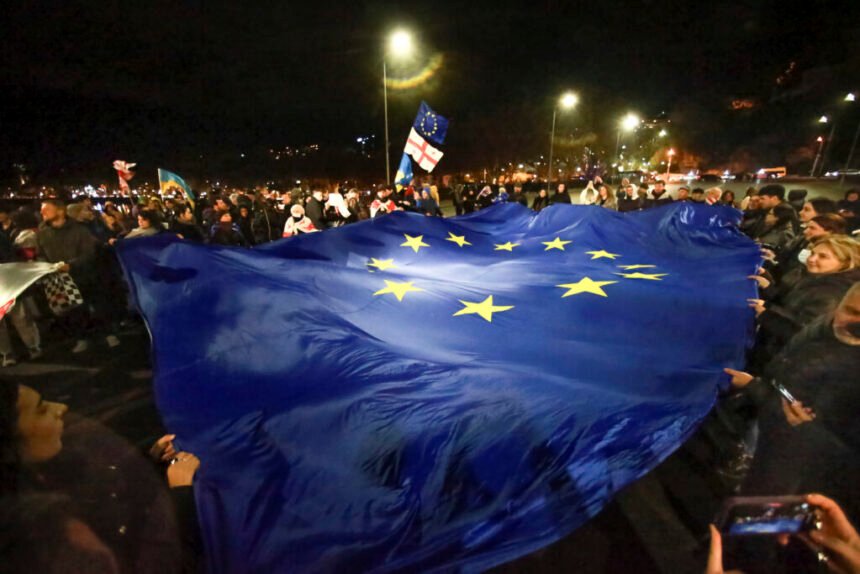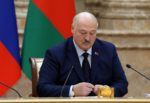Mass protests continue to erupt in Georgia as citizens demand the country maintain its pro-European path, despite increasingly violent crackdowns by authorities. Protesters, who have been rallying for days, have two main demands: new parliamentary elections after disputed October elections and a return to the European Union integration process enshrined in the country’s Constitution. Despite escalating violence—including attacks on journalists—protesters are not backing down.
Protests in Georgia: What Are the Demands?
On Sunday, December 8, thousands took to the streets of Tbilisi for the 11th consecutive day of protests. Demonstrators are calling for new elections after allegations of voter fraud in the parliamentary elections held on October 26.
The ruling party, Georgian Dream, has accused the opposition of organizing the protests with the support of foreign sponsors, alluding to the 2014 Ukrainian revolution. Protesters have been waving European Union flags and are demanding the country return to its European integration path.
Violence Against Protesters and Journalists
As the protests grow, so does the violence from law enforcement. Demonstrators have accused the government of using violent groups to disrupt the protests. Police have used water cannons, tear gas, and fireworks to disperse crowds, leading to over 400 arrests and more than 300 injuries.
Journalists have also increasingly become targets of violence. Reporter Maka Chikhladze and her colleague from independent TV station Pirveli TV were attacked while covering the protests, with their camera equipment stolen.
Pro-European Protests and Allegations of Electoral Fraud
The protests are largely driven by Prime Minister Irakli Kobakhidze’s announcement that EU accession talks will be postponed until 2028. The opposition has accused the ruling party of election fraud during the October parliamentary elections. While the government denies the allegations, international observers have documented irregularities.
Controversial Laws and Georgia’s EU Prospects
Georgia officially became an EU candidate country in December 2023. However, in recent months, the government has passed several laws that have raised concern in Brussels, including a “foreign influence” law that mirrors similar laws in Russia. As a result, the European Union has frozen Georgia’s accession process.







